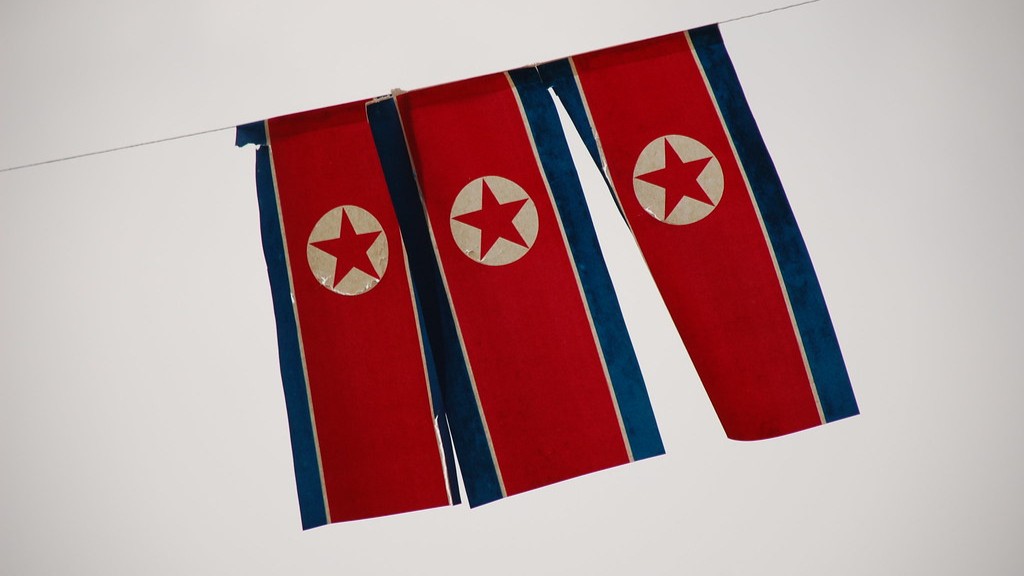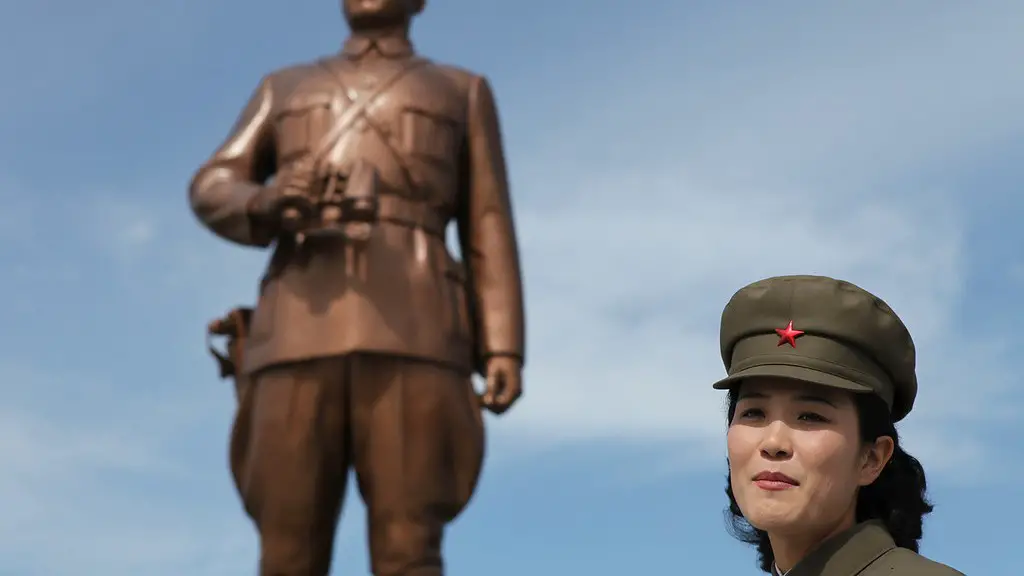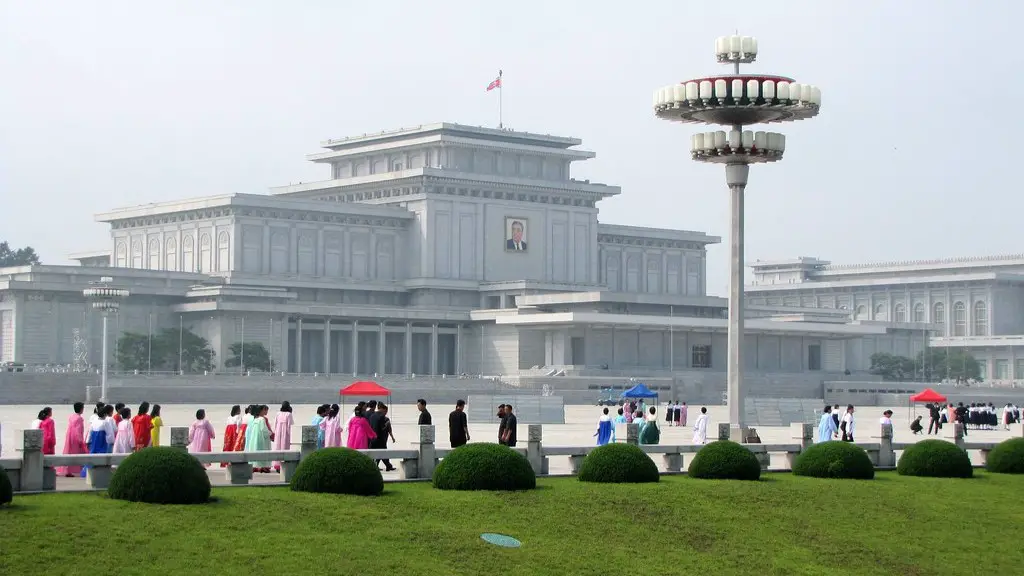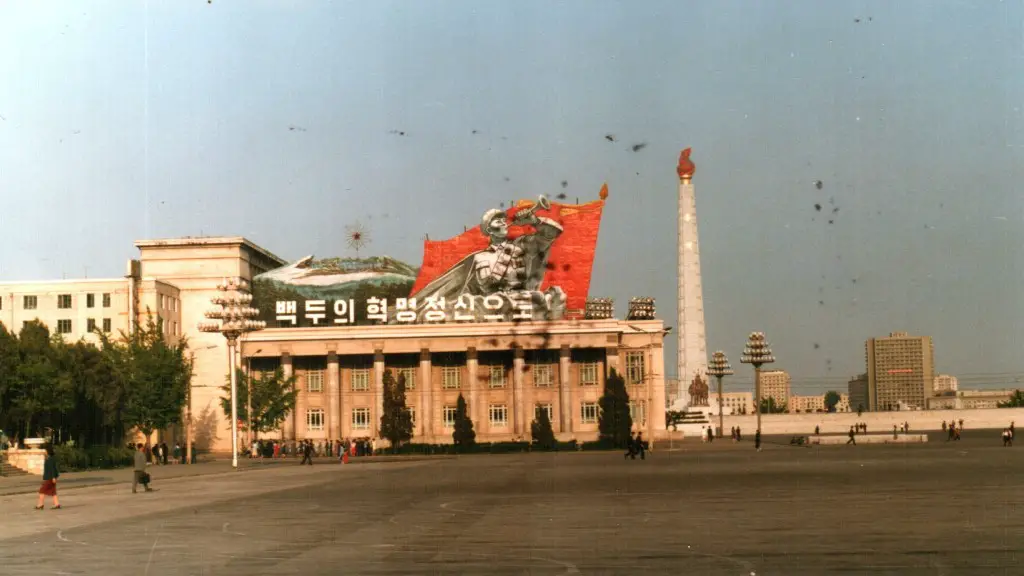The history of North Korea’s nuclear program has undergone several shifts and seen multiple regional players get involved over the past five decades. North Korea first started to pursue a nuclear weapons capability in the mid-1960s. This was a result of the increasing security threats it faced during the Cold War and the need to guarantee its national security. For many years North Korea has sought nuclear weapons as an insurance policy against any potential attack or intervention by outside powers.
In the early 1960s North Korea began to expand its nuclear infrastructure and technology with the aid of the Soviet Union. North Korea opened its first research reactor in 1966, the same year that it signed a cooperation agreement with the Soviet Union concerning research on the development of nuclear weapons. By then, the North Korean nuclear program was well underway.
North Korea established the Yongbyon Nuclear Scientific Research Center in 1976 and started to produce plutonium for its nuclear weapons program. The Yongbyon complex was capable of enriching uranium, testing warheads and weapons systems, and research related to nuclear control mechanisms and delivery systems. North Korea’s nuclear ambitions had grown enough that other powers, including the United States, began to take notice.
The United States and other nations responded to North Korea’s nuclear weapons program with economic and political sanctions in an attempt to halt its progress. In 1994, North Korea and the United States signed the Agreed Framework, which agreed to replace North Korea’s plutonium-based nuclear program with light water reactors, freeze North Korea’s plutonium-based program, and secure U.S. assistance in the form of fuel oil to help North Korea with its energy needs.
Despite the promises made in the Agreement, North Korea continued to develop its nuclear program. In 2006, the North Korean government conducted its first nuclear test, and in 2009 they conducted their second nuclear test. The second test solidified North Korea’s status as a nuclear power and showed the world that it was committed to maintaining a nuclear weapons development program.
In recent years, North Korea has continued to expand its nuclear weapons program, resulting in an increase in economic sanctions against it by the United Nations, the United States, and other regional powers. While North Korea has been open to negotiations with the United States, it has made it clear that it will not abandon its nuclear weapons program. As such, North Korea is likely to remain a nuclear power in the foreseeable future.
Impact of North Korea’s Nuclear Program
The nuclear program of North Korea has had major political, economic and military implications in both the region and the world. Politically, the nuclear issue has resulted in increased tensions between North Korea and its regional neighbors, including Japan, South Korea, and China. In addition, the United States has been involved in negotiations with North Korea for many years in an attempt to find a diplomatic solution to the issue and to contain the spread of nuclear weapons. The nuclear program has also affected the economy of North Korea as it is subject to various economic sanctions.
The nuclear program of North Korea has also had significant implications for military strategy in the region. North Korea’s nuclear program has emboldened it to act more aggressively in the region and has raised concerns that North Korea might use its nuclear weapons to provoke or attack some of its neighbors. The nuclear program has also necessitated an increase in defense spending by its neighbors in order to prepare for an escalation of tensions.
Lastly, North Korea’s nuclear program has had an impact on international security as North Korea has become a threat to global non-proliferation regimes. North Korea’s nuclear weapons capabilities have increased the possibility of the wider proliferation of weapons of mass destruction and have raised concerns about the risk of nuclear conflict in the region.
Diplomatic Efforts to Curb North Korea’s Nuclear Program
In recent years, the international community has taken various steps to try to bring an end to North Korea’s nuclear program. In 2018, the United Nations Security Council passed a resolution calling for the full and verifiable denuclearization of North Korea. The resolution also called for strict economic sanctions against North Korea until it completely dismantles its nuclear program. This resolution was followed by a series of negotiations between the United States and North Korea, primarily led by then-U.S. Secretary of State Mike Pompeo.
The goal of these negotiations was to persuade North Korea to abandon its nuclear weapons program in exchange for economic and political concessions. However, the negotiations stalled in 2019, and it remains unclear if the United States and North Korea will be able to come to an agreement.
In 2020, South Korea and the United States launched a series of diplomatic initiatives to try to restart negotiations with North Korea. South Korean president Moon Jae-in has been particularly active in this regard, traveling to Pyongyang in 2018 and 2019 to meet with North Korean leader Kim Jong-un. However, it remains unclear if these diplomatic efforts will bear fruit, as North Korea has been steadfast in its commitment to maintain its nuclear weapons program.
External Influences on North Korea’s Nuclear Program
North Korea’s nuclear program has been influenced by the actions of external powers such as the United States, China, and Russia. The United States has long sought to contain North Korea’s nuclear ambitions, implementing economic sanctions and working to bring about a diplomatic solution. China, as North Korea’s main ally and trading partner, has also been influential in limiting North Korea’s nuclear program, though it has been less willing to pursue strong economic sanctions against North Korea.
Russia, which has close ties to North Korea, has been less willing to take a hard line against the country. In fact, Russia has called for an easing of sanctions on North Korea in order to create a more conducive environment for diplomatic negotiations. In addition, Russia has offered to provide technical assistance to the North Koreans for their nuclear program.
In recent years, North Korea’s relationship with the United States and other regional powers has shifted. While North Korea has remained defiant and committed to pursuing its nuclear program, it has also expressed openness to negotiations with the United States and other countries. This has opened up a potential path towards a diplomatic resolution to the nuclear issue.
The Future of North Korea’s Nuclear Program
Despite diplomatic efforts and external pressure, North Korea is unlikely to abandon its nuclear program in the near future. North Korea has made it clear that it views its nuclear weapons program as an insurance policy against any potential outside intervention, and this is highly unlikely to change anytime soon.
In the short term, it is likely that North Korea will continue to pursue its nuclear program in an effort to gain concessions from the United States and other regional powers. In the long term, it remains unclear what path North Korea will take but it is likely that the future of the country, and the region, will be shaped in large part by North Korea’s nuclear program.
International Responses to North Korea’s Nuclear Program
In response to North Korea’s nuclear ambitions, the international community has largely focused on economic sanctions and diplomatic efforts. The United Nations Security Council has implemented multiple rounds of economic sanctions, primarily targeting North Korean citizens and businesses. Additionally, the United States and other countries have imposed their own unilateral sanctions against North Korea in an effort to curb its nuclear ambitions.
In addition to sanctions, the United States and other countries have sought to contain North Korea’s nuclear program through diplomatic negotiations. The United States and North Korea have held multiple rounds of negotiations over the past few years, with the most notable being the 2018-2019 Singapore Summit between U.S. president Donald Trump and North Korean leader Kim Jong-un. The Singapore Summit yielded a joint statement pledging to work towards the denuclearization of the Korean Peninsula, though the results of this agreement still remain unclear.
Other countries, such as South Korea and China, have also taken steps to seek a diplomatic resolution to the situation. South Korea has particularly been active in trying to broker a diplomatic solution and has held multiple rounds of negotiations with North Korea. Through these negotiations, South Korea has sought to defuse tensions and focus on building a rapport with North Korea. China, as North Korea’s main ally, has also sought to increase economic ties with North Korea and has provided economic aid to alleviate some of the effects of the sanctions.
Conclusion
North Korea’s nuclear program has been a major source of tension in the region for many years. Though negotiations between North Korea and the United States have resulted in some progress, it remains unclear if an agreement can be reached that results in the denuclearization of the Peninsula. The international community has heavily relied on economic sanctions and diplomatic efforts to try to persuade North Korea to abandon its nuclear program, but it remains to be seen if these measures will be successful. Ultimately, the future of North Korea’s nuclear program is uncertain, and it is likely to remain a major source of regional tension for the foreseeable future.





